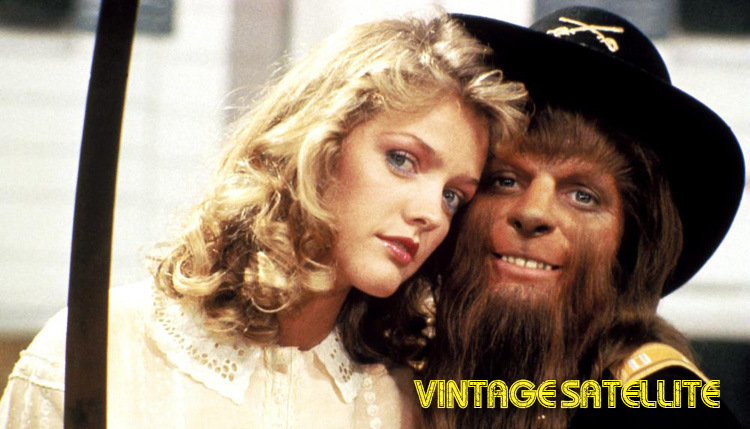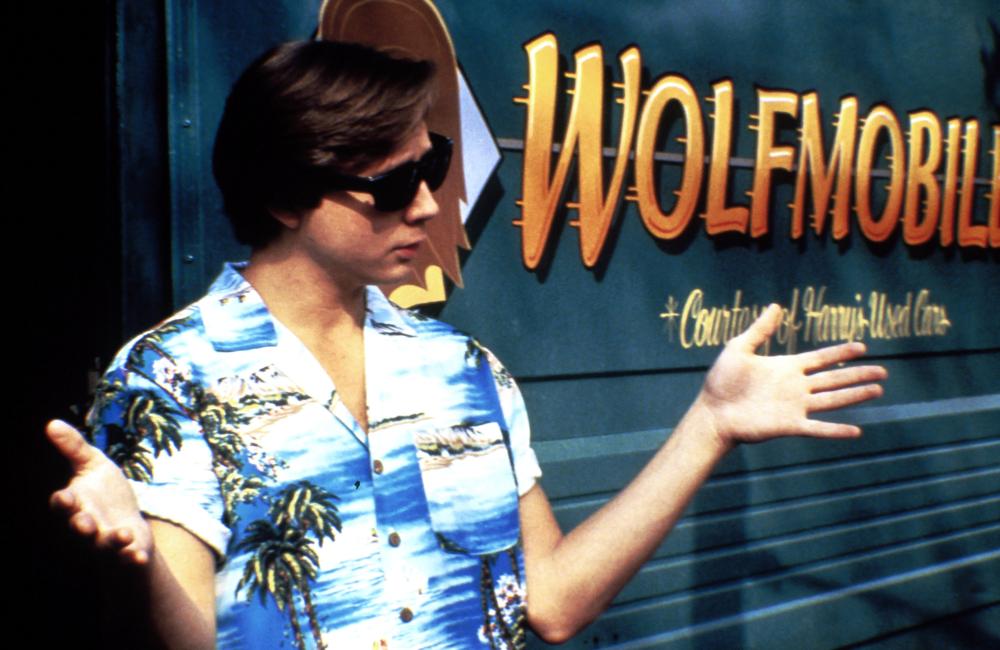
“It doesn’t matter how you play the game, it’s whether you win or lose. And even that doesn’t make all that much difference.”
Teen Wolf, 1985 (Michael J. Fox) Atlantic Releasing
1985 was the year of Michael J. Fox, whose Family Ties breakaway success parlayed his teen idol status into two highly lucrative movie projects. The first being, of course, the time-travel comedy, Back to the Future. The second was a much smaller independent comedy-horror movie called Teen Wolf. Made on a million-dollar budget, the movie debuted at number two in its opening weekend right behind Back to the Future. It wasn’t a movie that would’ve blipped on anybody’s radar, but because of Fox’s popularity, it became an enormous hit. I remember seeing it at the movies at least twice. When it came out on video, I rented it multiple times. It wasn’t just because Fox created such a likable character, but because it was about a reluctant werewolf.

In Teen Wolf, Fox plays Scott Howard, high school basketball star (yeah right); not the least bit popular, but with his best buddy “Stiles” (Jerry Levine) watching his back, maybe he’ll get lucky at some point. He has the tom-boy best friend (cutely named Boof, played by Susan Ursitti) and the object of desire, the dreamy Barbie doll-like Pamela Wells (Lorie Griffin). It’s like a John Hughes horror movie! Scott has a problem. He’s a teenaged werewolf. The werewolf syndrome is a visual analogy for the various changes we all go through in adolescence. Think Seth Green’s amiable Oz from Buffy. It turns out (at least in this story) the werewolf thing is just a family trait. Hilariously, he changes into a werewolf and opens the bathroom door to find his loving Dad has also turned into a werewolf, but equipped with reading glasses and a newspaper.

When he reveals his animal side to his peers, they are, at first, horrified, but then they get used to it. Scott becomes a superstar basketball player, given to his animal instinct, physical prowess, and dexterity with the ball. This seems like cheating to me. Like steroids. As Scott begins to understand his newfound fame (as well as bagging Pamela) is due to his “wolfing out,” he withdraws. He doesn’t want to be the wolf anymore. The hangers-on don’t want to have anything to do with him if they can’t latch on to his popularity. In many ways, Michael J. Fox plays an autobiographical character. Thrust to the forefront because of Alex P. Keaton, he would have enormous difficulty shedding that image in his desire to become a serious actor. In some ways, he succeeded. In most others, he failed. Teen Wolf is a charming and, strangely, smart comedy-horror about a werewolf who just wants to be loved.



